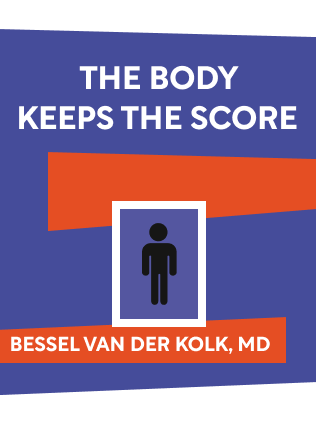

This article is an excerpt from the Shortform book guide to "The Body Keeps The Score" by Bessel van der Kolk. Shortform has the world's best summaries and analyses of books you should be reading.
Like this article? Sign up for a free trial here .
Did you read The Body Keeps the Score? Are you looking for some questions that will generate thoughtful discussion?
We tend to think of trauma in its most extreme forms, such as PTSD. But nearly everyone is likely to either suffer from trauma or know someone who does. In The Body Keeps the Score, Bessel van der Kolk explains that the physiological toll can be tremendous.
Read on for The Body Keeps the Score discussion questions that will help you understand and internalize the book’s ideas and apply them where appropriate.
The Body Keeps the Score Discussion Questions
Regardless of how many years or decades have passed since the traumatic event(s), your brain and body continue to feel the effects. Trauma rewires the brain to cause people to be hypervigilant to threats and repeat the same mistakes, seemingly compulsively.
We’ve organized several The Body Keeps the Score discussion questions into two exercises that you can go through individually or with a group.
Exercise #1: Nonverbal Communication in Social Interactions
As a baby, your interactions with your caregivers help you develop the ability to read people’s moods and emotions through their nonverbal cues, including body posture, tone of voice, and eye contact. Your ability to do this is critical in social interactions throughout your life.
- Think of a recent conversation you had with someone who you knew was upset simply by reading their body language. What could you discern through their facial expressions, tone of voice, posture, and other nonverbal clues?
- How did you feel before that conversation compared to after the conversation? How did your perception of the other person’s mood impact your own mood?
- Think of how you use this skill of intuition in group settings, such as a family dinner or work meeting. Describe a situation when a group’s effectiveness or difficulty reading each other’s emotions impacted the group’s ability to communicate, work together, or accomplish a task.
- Just as trauma causes victims to view others as threatening and struggle to make eye contact, describe a couple of ways that your own experiences impact the way you interact with others. (For example, perhaps you assume people are upset when they’re in a quiet mood because you’ve had a close relationship with someone who shut down or went silent when they were angry.)
Exercise #2: Recognizing Your Own Body Awareness
Recognizing the physical sensations in your body—as basic as feeling cold or hungry—is at the core of your sense of self. But, for most people, it’s so natural that you probably don’t even think about it. Use this exercise to notice your body awareness.
- Take a moment and focus on your body. Write all the sensations you notice—the feel of the chair against your back, your empty stomach growling, the smell of the room, the tension in your shoulders.
- Notice your current emotional state. How are your physical sensations affecting your emotions?
- Now let’s look at the reverse: Describe a recent instance when you noticed a physical sensation (e.g. tense muscles, headache, clenched jaw) that clued you into your emotional state.

———End of Preview———
Like what you just read? Read the rest of the world's best book summary and analysis of Bessel van der Kolk's "The Body Keeps The Score" at Shortform .
Here's what you'll find in our full The Body Keeps The Score summary :
- How your past trauma might change your brain and body
- What you can do to help your brain and body heal
- Why some trauma survivors can't recognize themselves in the mirror






